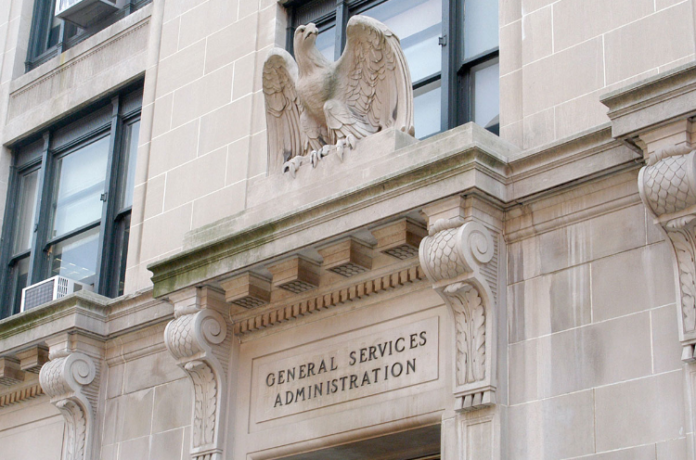The General Services Administration plays a vital role in the federal government by streamlining the procurement process for products and services across various government agencies. GSA contracts, often referred to as GSA Schedules or Multiple Award Schedules, allow government entities to purchase goods and services from pre-vetted vendors at pre-negotiated prices, ensuring efficiency, cost-effectiveness, and compliance with federal procurement standards. For businesses new to this space, hiring a GSA contract specialist can simplify the process and ensure a smooth and efficient application experience.
For businesses, obtaining a GSA contract opens the door to a vast marketplace of government buyers. These long-term contracts can offer a stable and reliable revenue stream by providing access to federal agencies looking for a wide range of products and services. Moreover, having a GSA contract enhances a company’s credibility and positions it as a trusted vendor within the government sector. Partnering with a GSA contract specialist like Price Reporter ensures that businesses not only qualify for the contracts but also maintain compliance throughout the lifecycle of the agreement.
Do You Qualify for a GSA Contract?
Before applying for a GSA contract, it’s essential to ensure that your business meets the necessary eligibility criteria.
Eligibility Requirements for Businesses
To qualify for a GSA contract, your business must meet several important conditions:
- Business Size: Although both small and large businesses can qualify for GSA contracts, small businesses may have certain advantages, such as being eligible for set-asides that encourage federal buyers to prioritize small, minority-owned, or veteran-owned firms.
- Product/Service Relevance: GSA contracts are awarded to businesses providing products or services in demand by federal agencies.
- Financial Stability: Strong financial health is essential for businesses entering into GSA contracts, as these agreements often involve significant volumes of transactions and long-term commitments.
Certifications and Documentation Needed
To apply for a GSA contract, you’ll need to complete several steps to verify your business’s eligibility and compliance with federal regulations:
- SAM Registration: All businesses interested in federal contracts must be registered in the System for Award Management. This is a free, mandatory registration process that certifies your eligibility to do business with the U.S. government.
- NAICS Codes: The North American Industry Classification System codes help identify the industry your business operates in and the products or services it provides.
- Additional Certifications: Depending on the industry, you may be required to provide additional certifications.
Importance of Pricing Structure and Compliance with GSA Rules
One of the most critical aspects of qualifying for a GSA contract is adhering to GSA’s pricing rules. GSA’s goal is to ensure that federal buyers receive the best possible value, which means that your pricing must be competitive and comparable to the prices you offer to your most valuable commercial customers.
As part of the contract, businesses must comply with pricing regulations, including the Price Reductions Clause. This clause ensures that the prices offered to the government are as good as or better than those offered to other customers under similar terms.
Preparing for the GSA Contract Application
Before you submit your GSA contract application, thorough preparation is key. Gathering all the necessary information and documents, along with developing a strong pricing strategy, will increase your chances of success.
Gathering Essential Information and Documents
- Financial Records: Ensure you have up-to-date financial statements for the past two fiscal years, including profit and loss reports, balance sheets, and cash flow statements.
- Product or Service Catalog: You’ll need to provide detailed descriptions of each product or service you offer, including specifications, capabilities, and pricing information.
- Pricing Structure and Discount Policies: You need to show that your prices are competitive and meet the government’s fair and reasonable pricing standards.
Conducting Market Analysis
Conducting a market analysis will help you determine whether your offerings align with the needs of federal buyers. Here’s how you can approach this analysis:
- Research Federal Spending Patterns: Investigate the types of products or services purchased by the government through GSA contracts.
- Identify Competitors: Look at other businesses that currently hold GSA contracts in your industry.
- Evaluate Demand: Based on your findings, assess whether there is significant demand for your products or services.
Developing a Government-Friendly Pricing Strategy
Here are some key considerations for crafting a government-friendly pricing structure:
- Price Competitively: Your prices should be competitive not only within the federal marketplace but also compared to the prices you offer to your best commercial customers.
- Offer Discounts: The more attractive your pricing, the more likely you are to secure federal buyers.
- Ensure Compliance with the Price Reductions Clause: The Price Reductions Clause requires that any time you lower your prices for commercial customers, you must offer the same reduction to GSA buyers.
- Document Your Pricing Justifications: Be prepared to explain how your prices are derived, particularly if they differ from the prices offered to your commercial clients.
The GSA Contract Application Process
Once you’ve gathered the required documents and established a solid pricing strategy, it’s time to move on to the actual GSA contract application process.
Submission of the GSA Proposal through eOffer
The first step in the GSA application process is to submit your proposal through eOffer, GSA’s secure online platform for contract submissions.
Your GSA proposal will typically include three major components:
- A Technical Proposal that describes your products or services, your business capabilities, and your relevant past performance with similar contracts or clients.
- A Pricing Proposal that outlines your pricing strategy, discounts, and how your pricing remains competitive and reasonable for government buyers.
- Administrative Information, which includes key details about your business, such as your SAM registration, NAICS codes, and contact information.
Providing Required Certifications and Disclosures
During the GSA contract application, you will be required to submit several certifications and disclosures to prove your business’s eligibility and compliance with federal regulations.
One of the primary requirements is an up-to-date SAM Registration. Make sure your registration is complete and includes your Unique Entity ID.
Additionally, you’ll need to provide Representations and Certifications to confirm your compliance with various federal laws and regulations. These include everything from environmental protection to cybersecurity, from furniture to office supply, to industrial hardware, etc., depending on your industry.
Preparing for the Evaluation Process
Once your proposal is submitted, the GSA will begin its evaluation. This can be a lengthy process, during which GSA will assess your business’s financial health and stability, pricing structure, and technical capabilities. They will also review whether your business complies with all necessary regulations.
To streamline the evaluation process, make sure your proposal is complete and accurate. Incomplete proposals or missing documentation can significantly delay the review process. Be prepared to answer any follow-up questions from the GSA and to negotiate terms if necessary.
Common Pitfalls to Avoid During Application Submission
Submitting a GSA contract application can be complex, and there are several common pitfalls that businesses should avoid:
- Incomplete Documentation: Double-check that all required documents are included and properly formatted before submission.
- Inaccurate Pricing Information: Miscalculating pricing or failing to align your pricing structure with GSA’s expectations can result in your application being rejected.
- Neglecting to Stay Current with Certifications: Your SAM registration and other certifications must be current.
- Failure to Understand GSA Requirements: Not fully understanding GSA’s requirements or skipping important steps in the process can lead to errors.
Navigating the Negotiation and Award Process
Once your proposal has been reviewed, the next step is navigating the negotiation process, leading to the ultimate goal of contract award.
The GSA evaluates your proposal based on several factors. First, they assess your technical capabilities. This involves reviewing your ability to deliver the products or services you have outlined, as well as evaluating your past performance and the overall quality of your offerings.
Pricing is another key factor. GSA reviews your pricing structure to ensure it meets their standards for fair and reasonable pricing. They compare your pricing to similar vendors and the discounts you offer to your commercial clients.
Managing and Maintaining Your GSA Contract
Managing and maintaining your contract requires ongoing attention to compliance, updates, and maximizing your visibility within the federal marketplace. Success in this phase depends on your ability to stay compliant with GSA requirements, manage your contract effectively, and market your products or services through GSA Advantage.
Ongoing Compliance
Once your GSA contract is awarded, ensuring compliance with federal regulations becomes a continuous responsibility. This includes adhering to the Price Reductions Clause, which mandates that the prices you offer to GSA are comparable to or better than those you offer your top commercial clients. Once your pricing structure changes for commercial customers, you must adjust your GSA prices accordingly, to stay in compliance. Additionally, your business must meet the requirements of regular audits and reviews conducted by GSA. Failing to meet compliance standards can lead to penalties, the suspension of your contract, or even its cancellation.
Beyond pricing, you’ll need to ensure your company stays compliant with labor, environmental, and cybersecurity regulations, depending on your industry.
Managing Your GSA Schedule
Effectively managing your GSA contract means keeping your schedule up-to-date and adapting to changes in market demand. One of the key aspects of this is managing your GSA Advantage catalog. You will need to ensure that product descriptions, pricing, and specifications are accurate and regularly updated.
In addition to catalog management, contract modifications will be necessary over time. These can include pricing adjustments, adding or removing products or services, and updating terms as your business evolves. GSA allows for modifications, but you’ll need to submit them for approval and ensure they align with federal purchasing standards. Contract extensions are another important part of managing your GSA schedule. GSA contracts typically last five years, with the possibility of extensions if you maintain compliance and perform well.
Utilizing GSA Advantage
To fully capitalize on your GSA contract, you’ll want to use GSA Advantage, the federal government’s online marketplace. This platform allows federal buyers to search for and purchase products or services directly from GSA contractors.
Ensure that your product descriptions are detailed and clear, with up-to-date pricing and specifications. Offering promotions or volume-based discounts can make your products more attractive to federal agencies. Marketing through GSA Advantage also involves monitoring your sales performance and staying responsive to government buyers’ needs. Regularly check your sales data to identify trends and adjust your offerings or pricing strategy accordingly.
Common Challenges and How to Overcome Them
Managing a GSA contract comes with its own set of challenges, particularly when it comes to compliance, competition, and staying updated with policy changes. Here are some common obstacles businesses face and strategies for overcoming them.
Dealing with Pricing Audits and Compliance Reviews
One of the most significant challenges GSA contractors face is maintaining compliance, especially when it comes to pricing. GSA conducts regular pricing audits to ensure that your prices remain fair and reasonable. These audits are designed to verify that the government is receiving the same or better pricing than your best commercial clients, in line with the Price Reductions Clause. Failing to meet these requirements can result in penalties, financial adjustments, or even contract termination.
To prepare for audits, it’s essential to keep meticulous records of your pricing agreements with both GSA and commercial clients. Ensure that any pricing changes are documented and communicated to GSA in a timely manner. Automating your pricing and contract management processes can help reduce the risk of human error and ensure that all price modifications are accurately tracked. Regular internal reviews of your compliance status will help you identify potential issues before an official audit takes place, allowing you to make the necessary adjustments proactively.
How to Ensure Your Business Remains Competitive in the GSA Marketplace
To stand out, your business must continuously evaluate and adjust its strategies to remain competitive. One of the most effective ways to do this is by regularly assessing your pricing and offerings in comparison to other vendors. Federal buyers are often price-sensitive, so ensuring that your pricing is both fair and attractive is crucial to winning and retaining contracts.
Beyond pricing, keeping your product or service catalog updated is key to staying relevant. Federal agencies seek vendors that offer high-quality, up-to-date products or services that meet their specific needs. Regularly updating your catalog on GSA Advantage to reflect new products, improved features, or competitive pricing can help maintain your visibility and appeal to government buyers.
Staying Up-to-Date with GSA Changes and Policy Updates
GSA policies and regulations are subject to change, and staying informed about these updates is critical to maintaining compliance and maximizing your success. Changes can include updates to pricing policies, compliance regulations, and new procurement processes. Ignoring these updates can put your contract at risk, so it’s essential to remain engaged with GSA communications.
To stay informed, regularly review the GSA’s official website, attend GSA webinars, and subscribe to their newsletters.
Expert Tips for Succeeding in GSA Contracting
Success in GSA contracting requires more than just winning a contract. It involves effectively leveraging available tools, building strong relationships with government buyers, and continuously seeking opportunities for growth through market intelligence.
Leveraging GSA’s Tools and Resources
One of the key advantages of holding a GSA contract is access to a range of tools and resources that can help you succeed. GSA Advantage and FedMall are two important platforms that allow government buyers to search for and purchase products or services from GSA-approved vendors.
GSA Advantage serves as the federal government’s primary online marketplace. By keeping your listings on this platform updated with detailed product descriptions, current pricing, and attractive offers, you can increase your visibility to federal buyers. Make sure your catalog is regularly updated and reflects any new products or services.
FedMall is another valuable tool, particularly for businesses that offer products used by the Department of Defense and other federal agencies. FedMall enables you to sell directly to government agencies, often in large quantities.
Building Relationships with Government Buyers
GSA contracting is not just about having the best products or services; it is also about building strong, trusting relationships with government buyers. Developing these relationships can lead to repeat business and long-term success. One way to build rapport with buyers is by being proactive and responsive to their needs.
Utilizing Federal Market Intelligence for Growth
Another key to succeeding in GSA contracting is using federal market intelligence to inform your business decisions. GSA provides a wealth of data that can help you identify trends, discover new opportunities, and optimize your strategies for growth.
Start by reviewing the Federal Procurement Data System, which provides insights into what federal agencies are purchasing, who the top vendors are, and how much they are spending. This data can help you tailor your offerings to meet the current demands of federal buyers.
Conclusion: How Price Reporter Can Help
Navigating the complexities of GSA contracting can be challenging, but with the right support, your business can successfully obtain and manage a GSA contract. Price Reporter offers a range of services designed to simplify this process and maximize your success in the federal marketplace. From assisting with the initial contract application to providing ongoing management and compliance support, Price Reporter ensures that your GSA contract remains competitive and fully compliant.



















